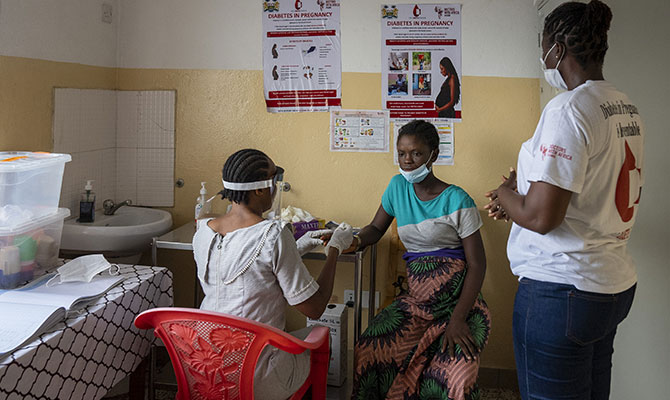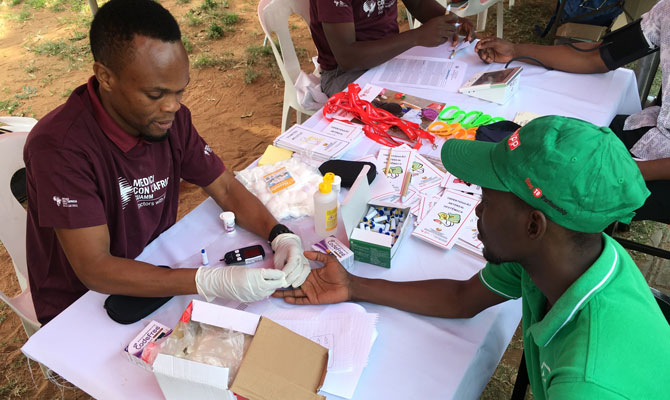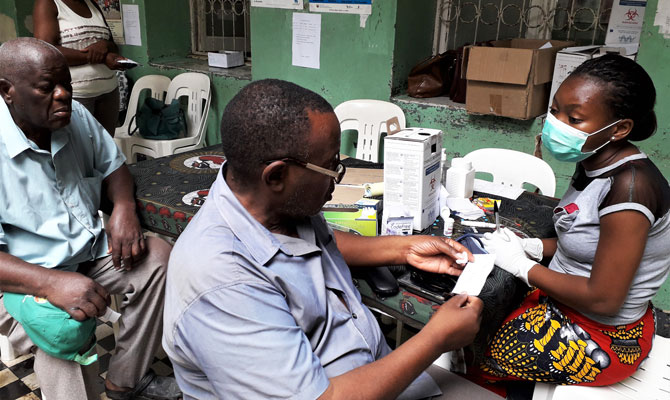«As in most of the countries in suh-saharan Africa, non-transmittable chronic diseases like diabetes and hypertension have been and still are not much taken into consideration in Mozambique. However, high incidence and tight relation with infectious diseases (e. g. diabetes and hypertension) force us to take them into serious and immediate consideration.
Thus CUAMM, in partnership with World Diabetes Foundation (WDF), decided to start a project of three years in Maputo, Sofala and Cabo Delgado provinces to promote prevention and strengthen health assistance».
Damiano Pizzol, Operational Research in Beira, Mozambique
The project, in partnership with the Department of non-transmittable Diseases of the Ministry of Health (Departamento de Doenças Não Transmissíveis do MISAU) and the Mozambique Association of Diabetes (Associação Moçambicana da Diabete, AMODIA), is called “Integrated Primary Health Care for Diabetes and Hypertension: First Phase National NCD Response” and started in autumn 2016.
The goals of the project are mainly three: to train qualified medical staff, to promote education of the community, to improve access to treatment with a focus on diagnosis and early therapy. The project lasts three years and aims at training 510 medical staff, including doctors, nurses and nutritionists. They can then offer consultation about diabetes and hypertension in 81 healthcare units among the 27 districts in Cabo Delgado, Sofala and Maputo. During the same time, 270 community health workers are trained to instruct and raise awareness on the population.
The first year of activities has recently come to an end and 115 medical staff has been trained on diabetes and hypertension, in order to guarantee the right approach when any complication comes up. With the aim to promote prevention and strengthen healthcare, community health workers have become a focal point to better involve the population, especially in those areas difficult to reach.
In addition, the equipment for the healthcare units were bought and used and some services were provided. Coordination, collaboration and communication among partners will result in a good outcome.




